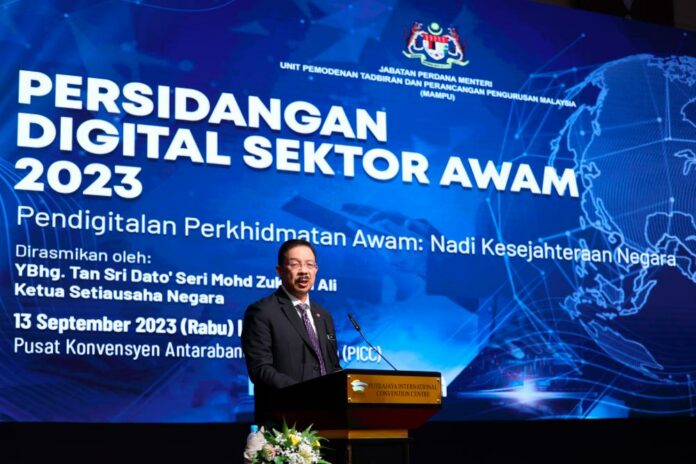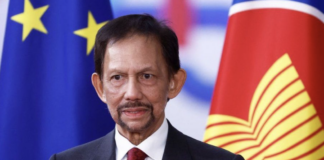PUTRAJAYA, Sept 13 — Government Technology or GovTech Malaysia was created to intensify the digital revolution towards improving the government’s ability in the quality of public data, public innovation and public services in a more holistic manner, said Chief Secretary to the Government Tan Sri Mohd Zuki Ali.
He said GovTech Malaysia was a “Whole of Government” approach in the modernisation of the public sector, which emphasises three aspects, namely being people-centric; universal access to government services; and the whole-of-government approach to digital government transformation pioneered by the World Bank.
Speaking at the Public Sector Digital Conference 2023 here today, Mohd Zuki said efforts to create GovTech Malaysia will definitely have a positive impact on the GovTech Maturity Index (GTMI) which was first introduced in 2020 involving 198 countries.
Based on the GovTech Maturity Index Report, 2022 Update: Trends in Public Sector Digital Transformation, Malaysia is categorised in group “A” or “GovTech Leaders” which is in the “Very High” index group, Mohd Zuki said.
“This index will definitely become a benchmark for the government in its efforts to improve the country’s capability and competence from a digitalisation perspective,” he said, while hoping that the civil service would always strive to position Malaysia as a leader in the digitalisation of government service delivery on the global stage.
Mohd Zuki said Prime Minister Datuk Seri Anwar Ibrahim has also confirmed that the government will start a digital revolution by simplifying the delivery of services through the full utilisation of the digitalisation agenda to the highest level.
“This is a tall order but one that will be the driving force to expedite the digitalisation agenda planned,” he said.
On the era of the Fourth Industrial Revolution (4IR), Mohd Zuki said the emergence of new technologies such as Metaverse, Blockchain, Artificial Intelligence (AI), Machine-to-Machine (M2M) and Internet of Everything (IoE) has changed the way the world operates.
In preparation for this new reality, he said the government has formulated policies that provide an ecosystem and which support digitalisation empowerment such as the National 4IR Policy and the Malaysian Digital Economy Blueprint.
These efforts, he added, are being carried out through government clusters under the Digital Economy Council and the country’s 4IR which are spearheading the initiative to drive digitalisation in the public sector.
“These policies are important in determining the direction by outlining strategies and initiatives and setting targets to build a foundation in driving the growth of the digital economy,” he said, while also adding that the policies were also capable of bridging the digital divide.
Calling on public servants to foster a culture of innovation and to increase creativity in research and development (R&D), Mohd Zuki said: “We are not just ‘providing’ services but rather ‘offering’ the best to solve the people’s problems.”
















